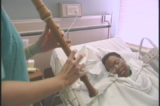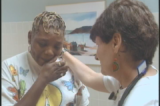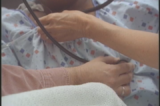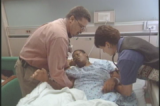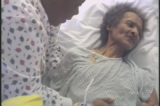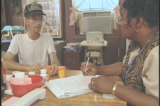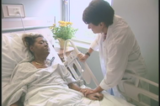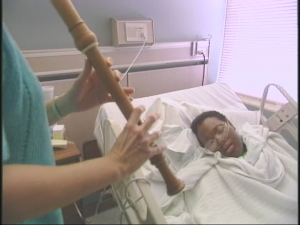
Four out of five Americans will die in a hospital. Yet the care they need or want at end of life may not be available to the dying and their loved ones.
In this 90 min documentary, part of the PBS series, On Our Own Terms — Moyers on Dying, we witness an inspiring model for what health care could be for the dying and their families at an extraordinary public hospital unit in Birmingham, Alabama.
At the Balm of Gilead unit Moyers and his team follow a pioneering group of professionals working to introduce the methods of hospice and palliative care medicine into the mainstream of health care.
We meet Dr. Amos Bailey, Director of Balm of Gilead, and his colleague, Edwina Taylor — a nurse of 29 years — providing exceptional comfort care at the end of life — addressing not only the physical needs of the dying, but the emotional, spiritual and social needs. “It’s such a powerful thing for them (the dying and their loved ones) to know that they have someone standing with them, that it’s okay to talk about dying,” says Taylor.
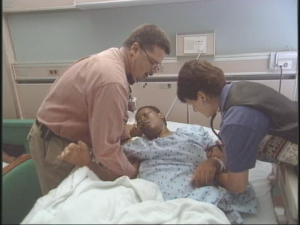
While we learn that every death takes its own course, and every family has its own issues, we learn about the sweat and work of these innovators in the trenches of our health care system.
Balm of Gilead provides palliative care in the hospital, but also works in tandem with Birmingham hospice to provide that care in the home. And they are pioneering hospice and palliative care at a local nursing home.
They are providing this care for the indigent, the working poor and the uninsured. One third of Birmingham’s population lacked health care insurance when this documentary was made in 2000.
Bailey and his team are setting out to change the culture of care for the dying. Meet Casandra Jackson, who drives the length and breadth of Jefferson County to visit her hospice patients at home. We meet Willie Fred Davis who is dying of lung cancer, and his wife, Shirley who provides most of his care. Mr. Davis has worked all his life, but no company provided health benefits. Now he survives on a disability check of $821 a month.
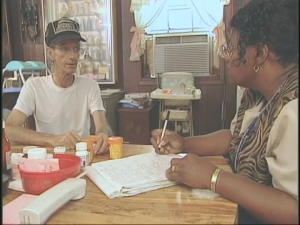
The Balm of Gilead weaves a safety net around their patients, like Davis, through Medicare and Medicaid reimbursements, church donations, foundation grants and the taxpayer-supported indigent fund. Figuring out how to pay for this care takes as much creativity as the care they provide. For more information go to the Moyers on Dying website:
Credits: Editor: Sharon Sachs; Field Producer: Paco de Onis; Associate Producer: Valerie Linson; Camera:
